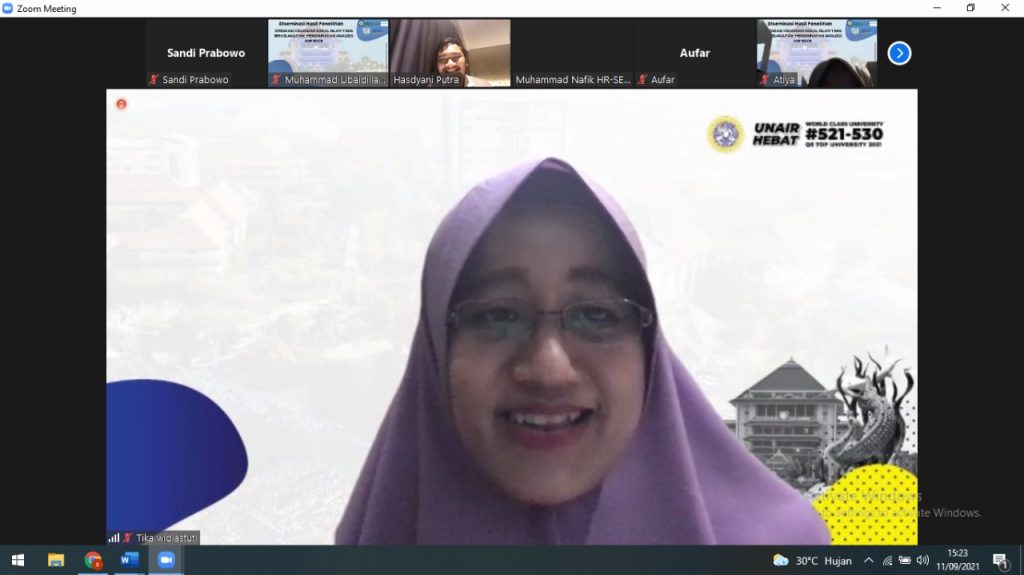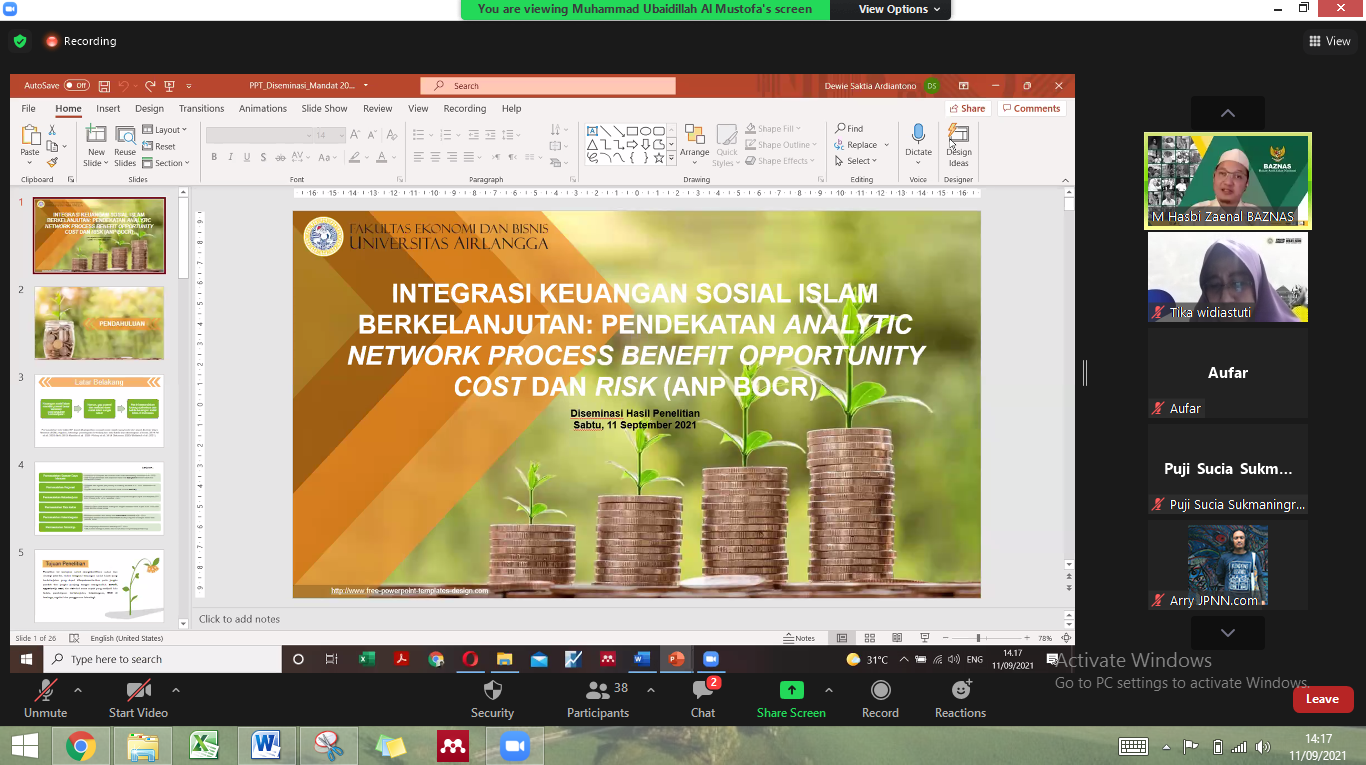UNAIR NEWS- The research team of the Faculty of Economics and Business (FEB) Universitas Airlangga (UNAIR) held dissemination of research results as a form of academic accountability and quality improvement of the conducted research. The research team consisted of Dr. Tika Widiastuti, SE., M.Si., Puji Sucia Sukmaningrun, SE., CIFP., Dr. Sri Ningsih, SE., M.Si. Ak., and Dr. Imron Mawardi, SP., M.Si.
Dr. Tika Widiastuti, SE., M.Si., said that the research team conducted the study for four months. The team carried out Islamic finance research publications from the data collection stage, result contraction, and dissemination stage.
“We hope that this research can contribute ideas that are in line with the needs of the community and can become part of teaching materials in the fields of Islamic socio-economic finance,” explained Dr. Tika.
The research carried out will not stop at the dissemination stage. They will carry out further research on topics that are in the same topic cluster. According to Tika, there are other topics that need to be developed in the study.
“Not only for scientific development but also for the essence of zakat, infaq, alms, and waqf (ZISWAF, ed) as Ekis (Islamic Economic, ed) instruments for the benefit of the people, especially amid the Covid-19 pandemic,” she explained.

The team conducted research entitled “Sustainable Islamic Social Finance Integration Using the Analytic Network Process Benefit Opportunity and Risk (ANP BOCR) Approach”. Muhammad Ubaidillah Al Mustofa as the presenter, said that the team’s urgency to conduct the research is because they saw a great potential to Islamic social finance. This potential will support sustainable development in Indonesia.
“But based on the data, the gap in the potential and realization of Islamic social funds is huge. This indicates that the governance of Islamic social finance in Indonesia is less than optimal,” explained Muhammad Ubaidillah.
According to the short and long-term analysis, this research concludes that financial integration in providing financing is the solution with the highest priority. Meanwhile, the integration of national data centers is the top priority solution based on the agreement of the experts.
“This research highlights the importance of improving the quality of technology-based human resources through big data management training for managers,” explained Muhammad Ubaidillah.
Experts’ responses
Ahmad Juwani as the Director of Sharia Economics of the National Committee for Sharia Economy and Finance (KNEKS) said that the top priority of integration is the integration of zakat and waqf. The integration can be carried out if it is approved by changes to the law.
“I prefer that the national data center comes first. After that, it will only lead to fiscal instruments because the integration of power centers can be done without any revisions to the law,” explained Ahmad Juwani.
Sigit Iko Sugondo as the Executive Director of the Al-Azhar Amil Zakat Institution (LAZ) added that the integration of zakat and waqf is important. However, there is no need for institutional integration because the aims and objectives are different.
“Big data is important for academics and regulators, but in the field, improving the quality of human resources is much more important,” explained Sigit.
Meanwhile, Muhammad Nafik Hadi Ryandono as an academic of Islamic Economics FEB UNAIR, said that what needs to be considered in integration is the integration of programs and the role of zakat institutions. According to him, waqf operations may be financed from the results of processing the waqf property itself.
In the end, Muhammad Hasbi Zaenal the Director of the Center for Strategic Studies of the National Amil Zakat Agency responded that the vision of zakat and waqf in the long term would be different. Improvement of human resources is necessary, but some things need to be considered, such as the working period of zakat managers.
“In the future, MUI fatwa is needed to optimize the management of Islamic social funds,” concluded Muhammad Hasbi.
Author: Sandi Prabowo
Editor : Binti Q. Masruroh (AC/AP)





